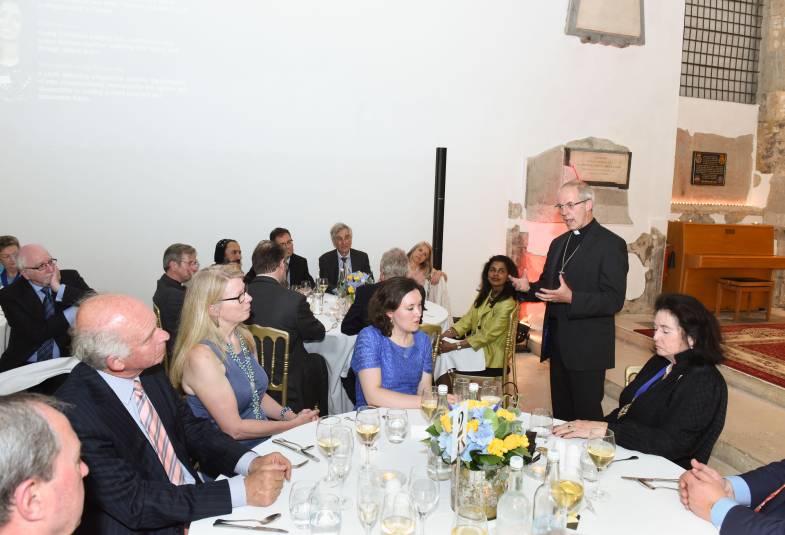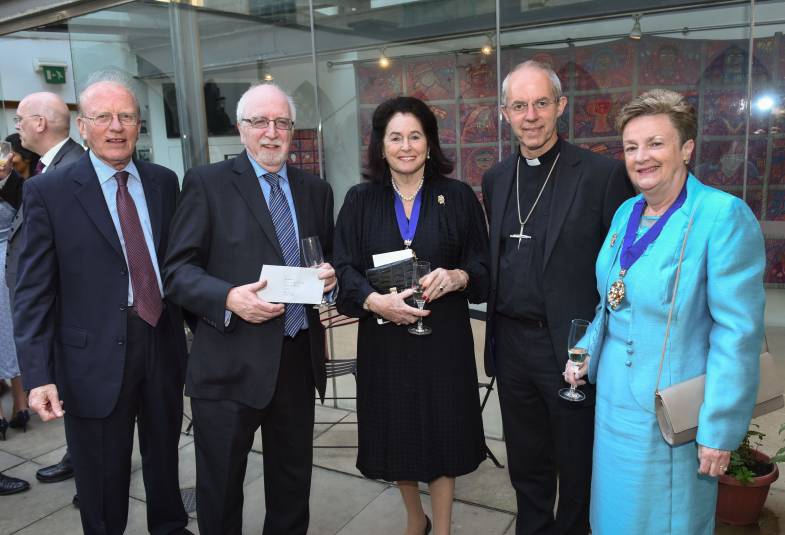
The Archbishop of Canterbury, patron of St Ethelburga’s Centre for Reconciliation and Peace, spoke earlier this month at a dinner in support of the work of the Centre which focuses on one of his main priorities of reconciliation.
The event drew together the Archbishop of Canterbury and the Bishop of London with senior figures from the City of London, Livery companies, academia and charitable trusts, to support the work of the Centre. Sir Tony Baldry, chair of trustees hosted the evening.
St Ethelburga’s which is located in Bishopsgate, London was destroyed by an IRA bomb in 1992 and at the initiative of the Bishop of London, was subsequently rebuilt as a centre to offer training and support for the work of conflict transformation and reconciliation.
Bishop Richard Chartres, life president of St Ethelburga’s, recalled the day in 1993 when the church was destroyed and how the idea of it being rebuilt as a centre for reconciliation and peace had come to fruition. He spoke of the image of St Ethelburga created in the east window from the fragments of mediaeval glass shattered by the blast as a sign of the Centre’s role in reconciling fractures in the world.
Archbishop Justin described how the example of forgiveness and reconciliation first set in Coventry after the destruction of the cathedral in 1940, had led to the creation of a network of centres around the world dedicated to reconciliation. He said: “St Ethelburga’s is a key member of that network and is a symbol and a place of reconciliation in relation particularly to religiously inspired conflict.”
“St Ethelburga’s is a place of hope, a place of redemption and of commitment to the kind of world we hope to bring about. . . Our responsibility is to enable the great mainstream orthodoxies of the faiths to find their way back to capturing the imagination and the hopes, particularly of the younger generation.”
“Holding religious values is an authentic, reasonable and desirable world view and St Ethelburga’s offers a contribution to one of the most intractable issues of our time: how to transform conflict and disagree well.”
St Ethelburga’s offers a range of opportunities to equip people for the work of reconciliation in local communities and in the wider world; it works with community groups on their situations of conflict and its transformation; and seeks to influence public discussion and policy on issues of conflict and reconciliation which are crucial to the wellbeing of society.
